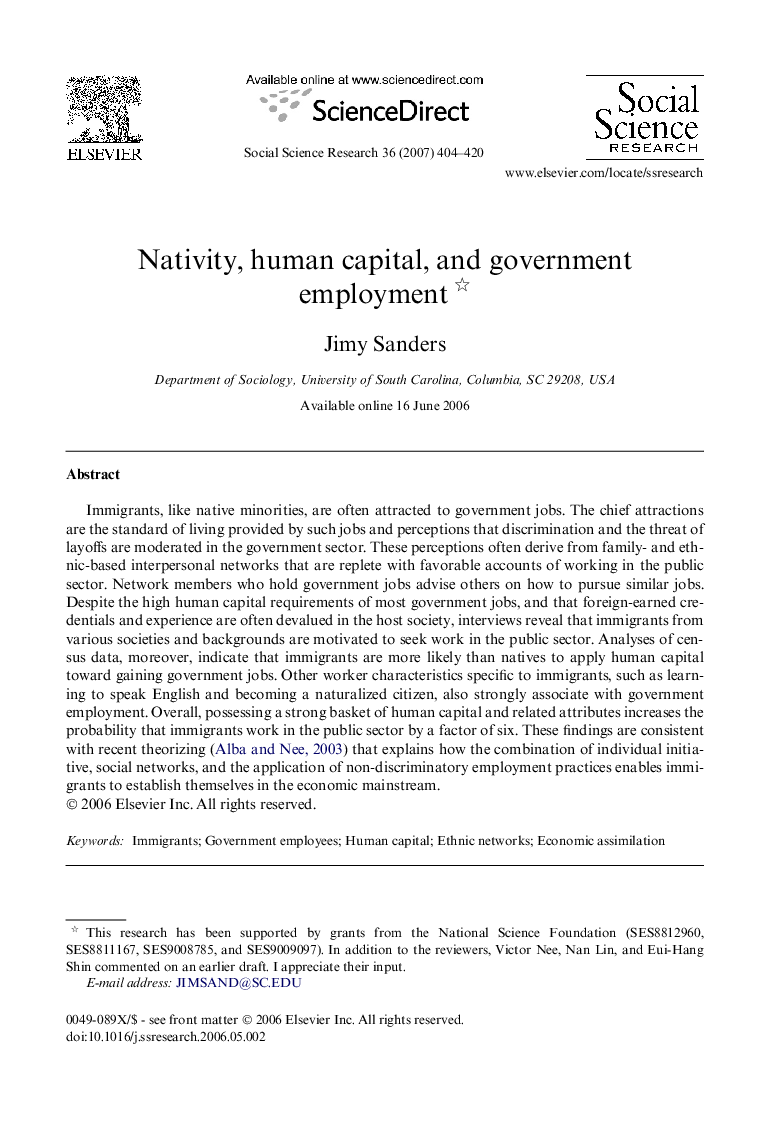| Article ID | Journal | Published Year | Pages | File Type |
|---|---|---|---|---|
| 956489 | Social Science Research | 2007 | 17 Pages |
Immigrants, like native minorities, are often attracted to government jobs. The chief attractions are the standard of living provided by such jobs and perceptions that discrimination and the threat of layoffs are moderated in the government sector. These perceptions often derive from family- and ethnic-based interpersonal networks that are replete with favorable accounts of working in the public sector. Network members who hold government jobs advise others on how to pursue similar jobs. Despite the high human capital requirements of most government jobs, and that foreign-earned credentials and experience are often devalued in the host society, interviews reveal that immigrants from various societies and backgrounds are motivated to seek work in the public sector. Analyses of census data, moreover, indicate that immigrants are more likely than natives to apply human capital toward gaining government jobs. Other worker characteristics specific to immigrants, such as learning to speak English and becoming a naturalized citizen, also strongly associate with government employment. Overall, possessing a strong basket of human capital and related attributes increases the probability that immigrants work in the public sector by a factor of six. These findings are consistent with recent theorizing (Alba and Nee, 2003) that explains how the combination of individual initiative, social networks, and the application of non-discriminatory employment practices enables immigrants to establish themselves in the economic mainstream.
